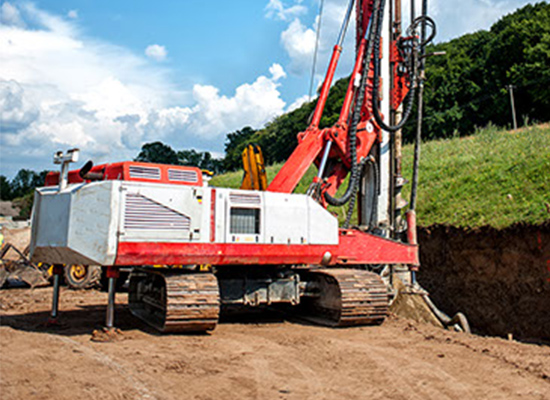Soil is one of the key elements of the construction industry. Every company should have considered the situation of ground before building something on it. Soil testing for building must be done before construction. There are key factors that are very important for civil and mining engineers about soil in civil engineering. Engineers inspect the ground carefully because bad ground condition can cause serious accidents. Soil reports can reveal many problems about ground and it should have prepared before starting construction. In this article, I am going to give detailed information about ground inspections and soil classification building. This article also consists of brief information about soil mechanics and rock mechanics.

Soil Mechanics
Soil Mechanics is the discipline that examines behavior of the soil in certain conditions. Soil is a kind of mixture that contains gravel size particles, air and water. These particles consist of clay, sand, gravel and silt. Due to the habitat, soil also contains carbon-based materials. Importance of soil in civil engineering is significant. Many civil engineering calculations are about ground control. Stability of the ground can be changed depends on several parameters. Water presence has great effect on the stability of the ground. If water amount in the ground is not calculated properly, it could because serious accidents like collapsing of the building. To avoid these kinds of situations, soil testing for building must be done before construction. Soil reports should be prepared. These reports reveal the characteristics of the soil and the ground. Also, these reports should contain soil classification of the building.
Rock Mechanics
Rock Mechanics is the discipline that examines the behavior of the rocks. Since all buildings are constructed on the rocks and soil, rock mechanics is the very important field for mining and civil engineers. Thanks to the rock mechanics, today we construct underground structures like Manche Tunnel. There are several factors that affects the behavior of the rock. Discontinuities are one of these factors. They can be considered as the planes that marks the physical or chemical change in rock and structure. There are many varieties of the discontinuities. For instance, faults are on the varieties of the discontinuities. Faults, fractures and joints are decreased the quality and strength of the rocks and soils. Another factor is water. Water lowers the strength of the rock just like soil. Water presence is unwanted thing in construction field. Water should always consider while designing a tunnel or any other building.
Rock Mass Classification
Rock mass classifications are systems that used by civil and mining engineers to define the properties of the rock mass. There are many rock mass classification systems used in different regions of the world. Some of these systems are: Q System, RMR, NATM, GSI etc. All these systems are used to define the characteristics of the rock mass. Constructions designs are made according to the rating of the rock massed. These calculations should be made carefully because even a small mistake could cause fatal accidents. To avoid accidents, experienced engineers should be worked on dangerous projects like tunnel design. Mining engineers do not use systems for tunnel designs only. These systems are also used to make calculations of open pit mine slope stability and underground mine stability. Discontinuities and water table should be invested carefully before construct drifts in an underground mine.
Leave a Reply